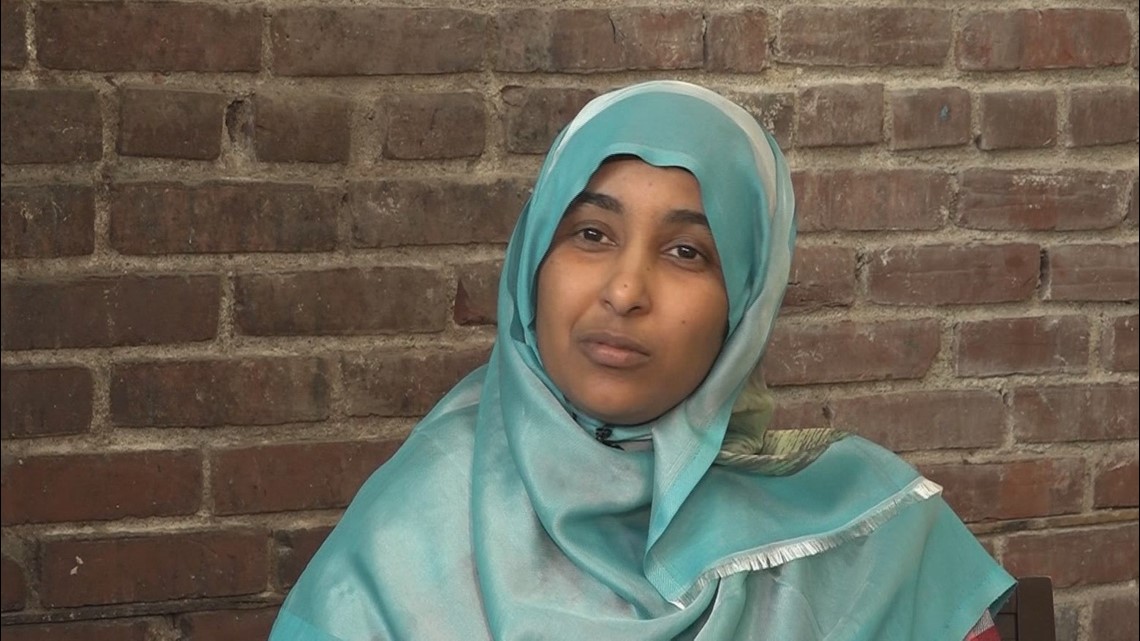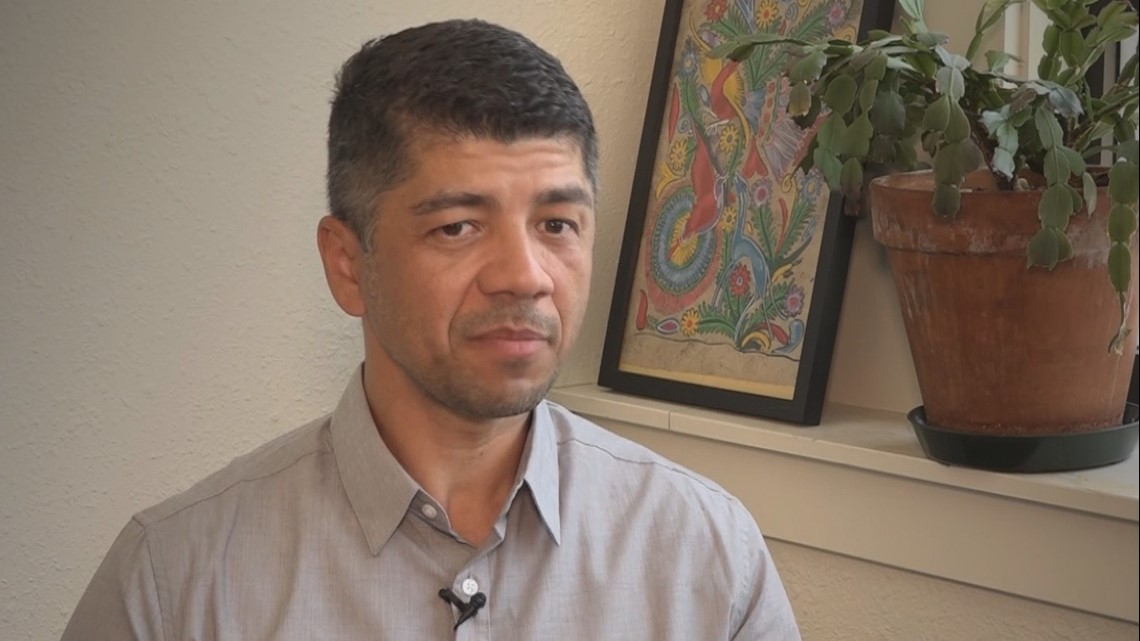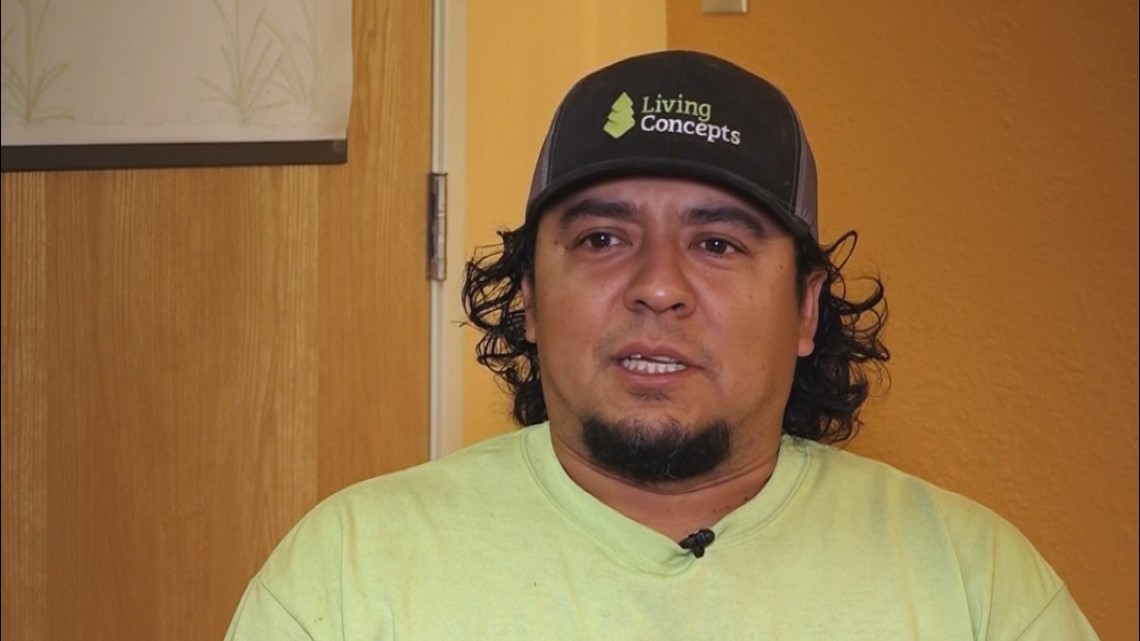EUGENE, Ore. — Two Oregonians in two different cities say they were both victims of hate crimes. Their stories highlight how victims are treated differently across the state.
"He just yelled and screamed and said all kinds of names that I don't want to say,” said Suad Elmi, who said she was a victim of hate speech in Portland.
“He turned around and said, 'You know what's going to happen if I cut your head off right here, right now? Nobody's even going to do anything about it because I'm white and you're not,'” recalled Sergio Reyes Martinez, who was the victim of a hate crime in Eugene.
Both Elmi and Martinez said their stories are not isolated incidents. They both said it happens all the time.
Elmi lives in Portland. She is a mother and works at a local nonprofit that helps refugees and works for social justice. A little more than a year ago, she said she was stopped in traffic with her son at Southeast 82nd Avenue and Powell Boulevard when a man came up to her car and started banging on her window.
“Oh my, I was so shocked, like, I was afraid that we might get killed,” Elmi said. “My son was traumatized. He was scared. He was crying.”
Elmi said the man used racist insults.
“He targeted me because I was a Muslim person wearing a scarf. I don't know why else,” she said.


Martinez lives and works in Eugene. He said he and his coworkers were threatened and assaulted by a man in a parking lot.
“He rolled his window down and he started calling us names, like racial names,” Martinez said. “He was calling my coworker beaner, wetbacks. He called my coworker greasy-ass Mexican. He was telling me that he's got rights because he says, you going to jail, you going to Mexico today, tonight, that's what he says. He said my president is going to send you back.”
In both incidents, Martinez and Elmi called police. But, they have very different feelings about how their cases were handled and that difference might just be because one case happened in Eugene and one happened in Portland.
In Martinez's case, for example, the suspect both made verbal threats and physically assaulted one of his coworkers.
In Eugene, where Martinez was a victim, the police department is not the only agency assigned to help victims of hate crimes and track how often they happen. The city also has what is called the Office of Human Rights and Neighborhood Involvement. Fabio Andrade works there as a human rights and equity analyst.
“Many people call our office and they start by saying, I'm not sure I'm calling the right place,” Andrade said.
Andrade’s office tracks hate crimes and offers support to all victims, even if what happened to them does not result in criminal charges through the police department.
Tracking the criminal and noncriminal incidents helps the city get a better idea of what is really going on, so they can identify trends.
“If you don't know the problem, you cannot find the right solution,” Andrade said.


Eugene’s tracking system also explains why it looks like the city has more hate crimes than any other in Oregon. FBI statistics on hate crimes from 2017, which is the most recent year available, shows Portland only had 18 hate crime incidents, while Eugene had 72. Eugene’s number is also more than all other cities combined, which is 64.
“It's impossible that Eugene would be responsible for half of the hate crimes in Oregon. So, we know that's not the case,” Andrade said.
It is a different story in Portland. The Portland Police Bureau has two bias crime detectives, who also work on assault cases, but there is not an office like Andrade’s that works alongside police.
When it comes to tracking hate crimes, Portland Police spokeswoman Lt. Tina Jones said the bureau follows federal guidelines.
“Not every crime that's reported to us as what someone perceives to be a bias crime ends up being a bias crime,” Jones said.
She said even though someone may feel like they were the victim of a hate crime, it has to meet certain criteria to be investigated and tracked as one.
“That doesn't mean that that incident wasn’t frightening for the person involved or that their perception is that they were maybe targeted because they fit into a protected class, but we can't arrest people if we don't have a crime that we can prove,” Jones said.
That is frustrating for Elmi. She was terrified by what happened to her and felt it was racially-motivated. But, police said they couldn't do anything about it and she had nowhere else to turn.
If her incident had happened in Eugene, Elmi would have at the very least been connected with Andrade’s office like Martinez was.
They supported Martinez through the entire process and the man who targeted him was charged with a hate crime and taken to court.
“It's just really hard to think about it again because it's been over a year since that happened and it's just horrible going back and thinking about it,” Martinez said.


Even though the suspect was put on trial, the outcome of the case was not what Martinez was expecting. The man was found not guilty.
“I can't explain what the feeling is,” Martinez said. “It makes you mad, it makes you angry, it makes you sad, brings you back memories again... the saddest thing is nothing happened."
Martinez’s sadness and anger are why victims and advocates say Oregon needs to do a better job of addressing hate crimes. Right now, that system is not consistent across the state.
However, change is on the horizon.
On July 15, 2019 Gov. Kate Brown signed a new hate crimes bill into law. It establishes a hate crimes hotline for victims to call and directs agencies to do a better job of collecting and reporting data on hate crimes and bias incidents.
“I think this bill will help Eugene not feel like the lonely jurisdiction doing this kind of work,” Andrade said.
Many also hope it will help victims like Martinez and Elmi not feel alone.
“Sometimes I try not to pay attention, but if I was paying attention I could say every day. It happens every day,” Martinez said.
“It's really bad, I don't know if people understand that, but it's really hard,” Elmi said.
Experts estimate hate crimes are grossly under-reported. The hope is that a new victims' hotline will alleviate that issue and allow victims to feel more comfortable coming forward.

